
Armaggarden: Community Chard installation at Fuller Craft Museum “Food Justice” exhibition, hydroponics system, autumn 2022, Brockton, MA
Nanabush’s Spirit Brings Dinner Home with a Smile: Wendy DesChene + Jeff Schmuki working as PlantBot Genetics
Olivia Ann Carye Hallstein
Wendy DesChene and Jeff Schmuki use a satirical guise of corporate agriculture to create interventions that help address food insecurity in the communities of installation. By promoting solutions like hydroponics systems to combat climate and industry related soil and water depletion, they advocate for existing projects and help develop new initiatives in communities that face poverty and insecurity. They approach these difficult topics not in a confrontational manner, but by using humor and interactivity to bridge understanding and have a lasting impact.
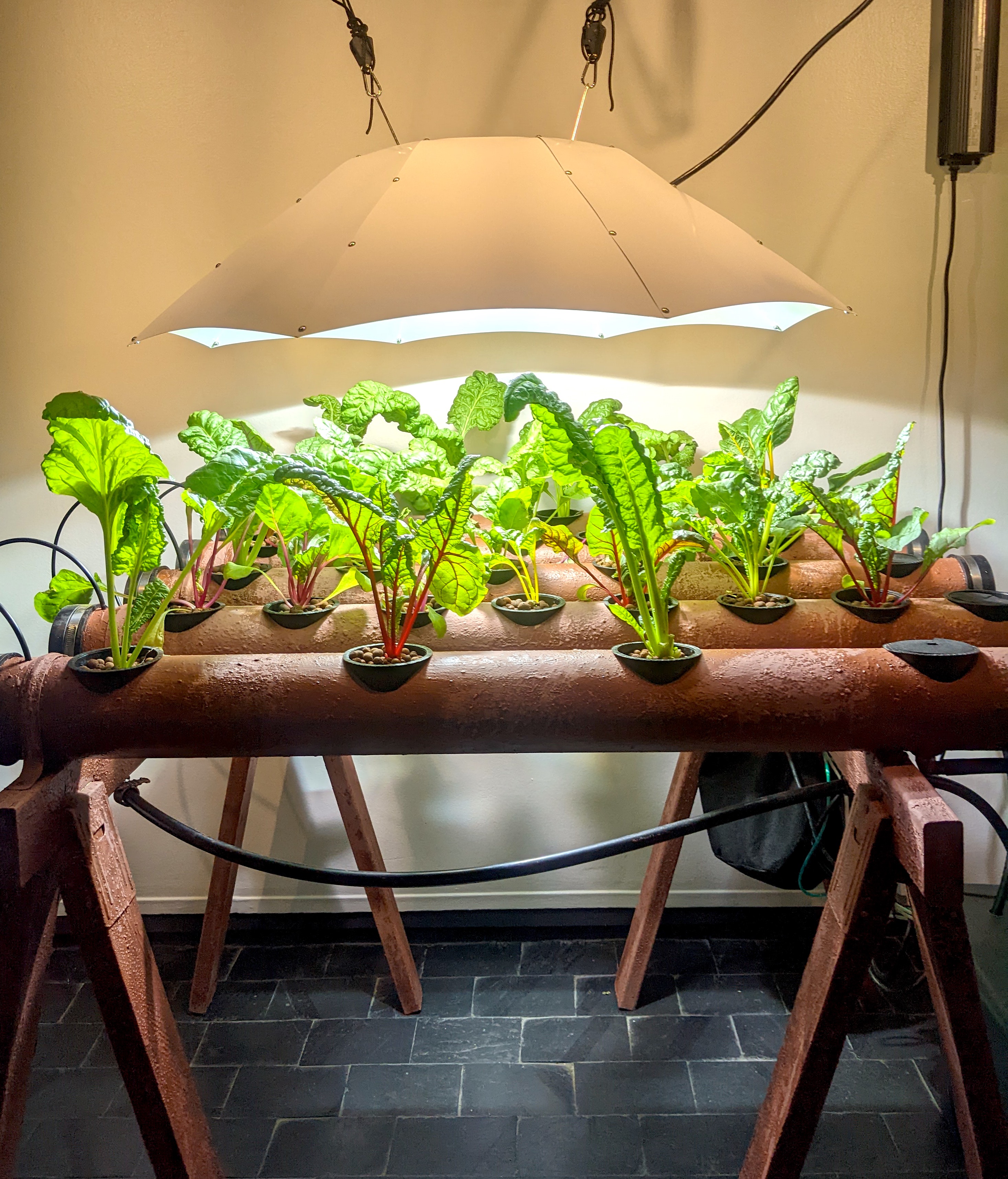
Armaggarden: Community Chard installation at Fuller Craft Museum “Food Justice” exhibition, hydroponics system, autumn 2022, Brockton, MA
Wendy and Jeff, it is very exciting to get the chance to discuss your work at a time when food insecurity and the need for integration and innovation are so poignant. How have your common goals of art as political intervention led you to the topic of food security and accessibility?
As one of the building blocks of culture, cuisine helps define cultural identity by strengthening communities. By promoting healthy and prosperous communities, food becomes a political act to combat systemic poverty, food insecurity and manipulation. By association, healthy food systems help combat corporate greed and raise people out of poverty. Lower-quality, homogenized convenience foods that are marketed to people struggling with time and/or money, continue this circle of disempowerment. We believe that access to clean, affordable, and healthy food is a basic need and right.
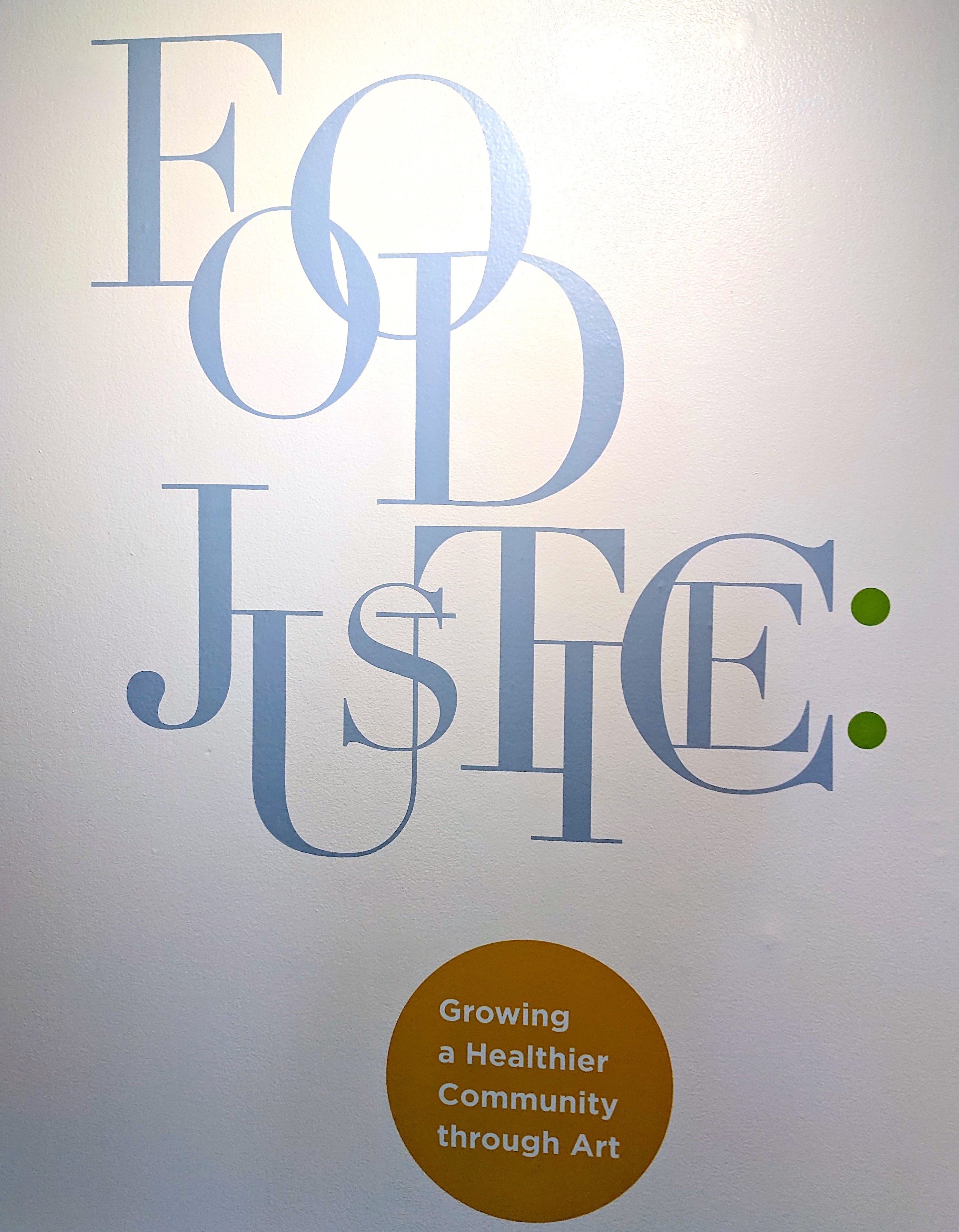
Food Justice Exhibition at Fuller Craft Museum, autumn 2022
I was lucky enough to see your piece “Armagardden: Community Chard” at the Fuller Craft Museum. You have created a hydroponics system built out of otherwise discarded terra-cotta refuse that produces actual produce. How have you designed your work to support food justice within communities directly?
Jeff: The title of this work “grows” from the concept that the people living near the installation will tend to it and continually harvest food from it. No matter where the garden is located, the grown chard is directly donated to non-profit organizations that put it into the hands of people who are experiencing food insecurity. The art center becomes a local community garden during this time. This interruption of the day-to-day workings of the gallery is also important because it demonstrates food can be grown anywhere. Food insecurity is not only caused by geography.
Hydroponics is as healthy as traditional cultivation. Our process involves recycled ceramics that are fired at temperatures above 1500°F. This vaporizes unwanted pathogens such as bacteria and viruses. All other hydroponic equipment is also sanitized following standard food handling practices. Since hydroponically grown plants are raised in a sanitized environment, we can use fewer pesticides and herbicides as well as less water and space. The ‘Community Chard’ work is free from any pesticides and herbicides.
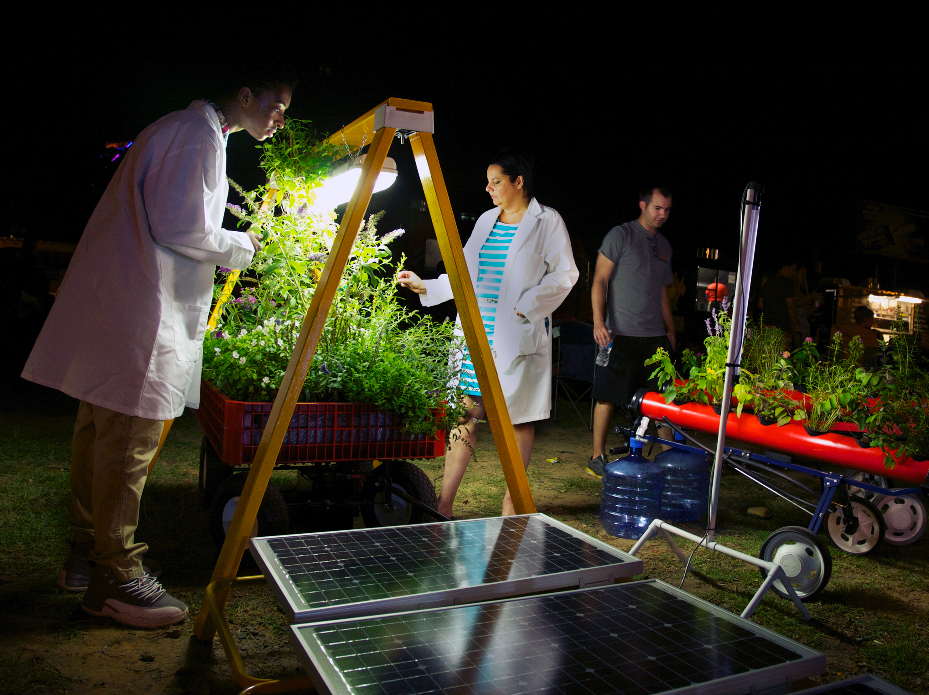
Portable Solar Gardens
It is so cool to integrate the museum space into the surrounding community this way. Also, I did not realize that hydroponics systems are thousands of years old! How does contemporary Indigenism relate to food and hydroponic systems?
Wendy: No one in North America understands the land better than the people who thrived here for 20,000 years. Colonial farming styles started taking over about 350 years ago – a blink of an eye in the overall presence of humans on the continent- but with it brought a rapid decline of natural systems that were previously stable. It's time we look at older techniques that were forcefully dismissed by colonial re-education and relocation. This cultural genocide changed traditional diets and lifestyles, creating social and economic inequalities that contribute to food insecurity to this day. As a woman and a minority, it was clear that this work needed to challenge elitist and discriminatory structures that touch all areas of a healthy and happy life, including food, shelter, and education.
Reclamation is the modern native story. Sustainable innovation is a First Nation's ideal. Hydroponics systems use less water than industrial farming styles by delivering nutrients and water to the roots directly. For example, within the Navajo Nation, food insecurity is 76.7% (the highest reported rate in the US) because their reservations regularly experience severe drought due to extraction companies nearby. Through the Farm & Garden Incentive, hydroponics systems can help mitigate these effects by producing higher yields in shorter time frames using less space and without soil. Using these systems does not contribute to the destruction and disruption of topsoil unlike industrial agriculture that has severely depleted topsoil integrity and biodiversity in the US.
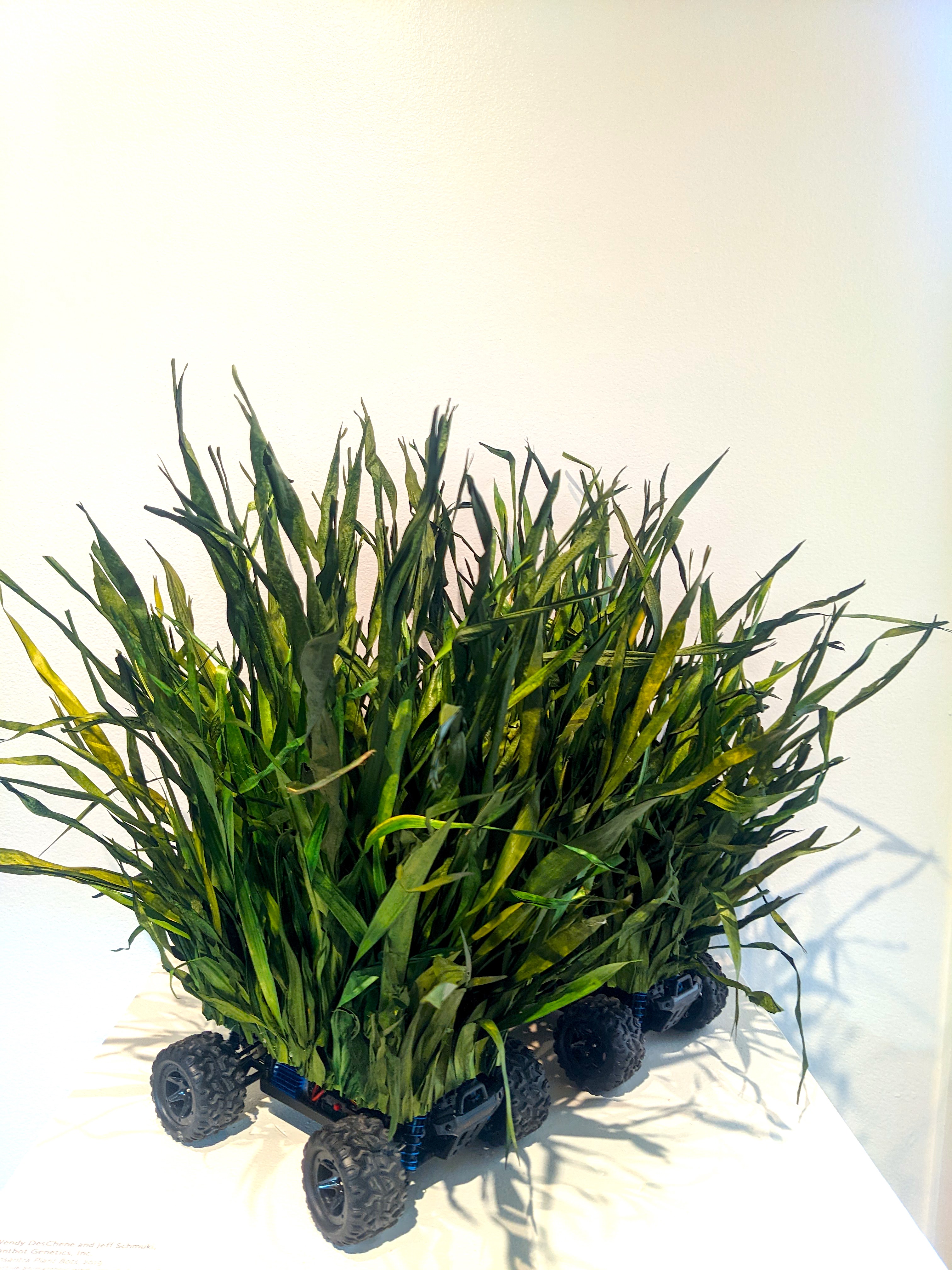
Monsantra Plant Bots (2019) from “PlantBot Genetics, Inc., interactive animatronic work, recycled and refashioned mixed materials
And you address this directly! By creating a satirical corporation like PlantBot Genetics, you are directly criticizing the systems and structures of industrial agriculture through humor! How does satire create lasting change in food? And what would you like to change most?
Transparency. Big-Ag food system designs are difficult to understand, inaccessible, and overly complicated. They also put profit before people by promoting products such as herbicides, pesticides, and synthetic fertilizers. Since documenting how our food is produced is illegal in many states due to food libel laws, it seems like the food industry believes the less the public knows about how food is produced, the better.
The PlantBot projects are a way to educate and advocate. Still, no one is standing on a street corner, picketing, or handing out flyers. Today that type of engagement turns people off. Instead, we are on the street with a remote-controlled plant, piquing curiosity through laughter. Humor is universal, disarming and puts everyone in a good mood. Showcasing the irrationality of big Ag in an absurdist, yet funny way pushes for change in an unexpected way.
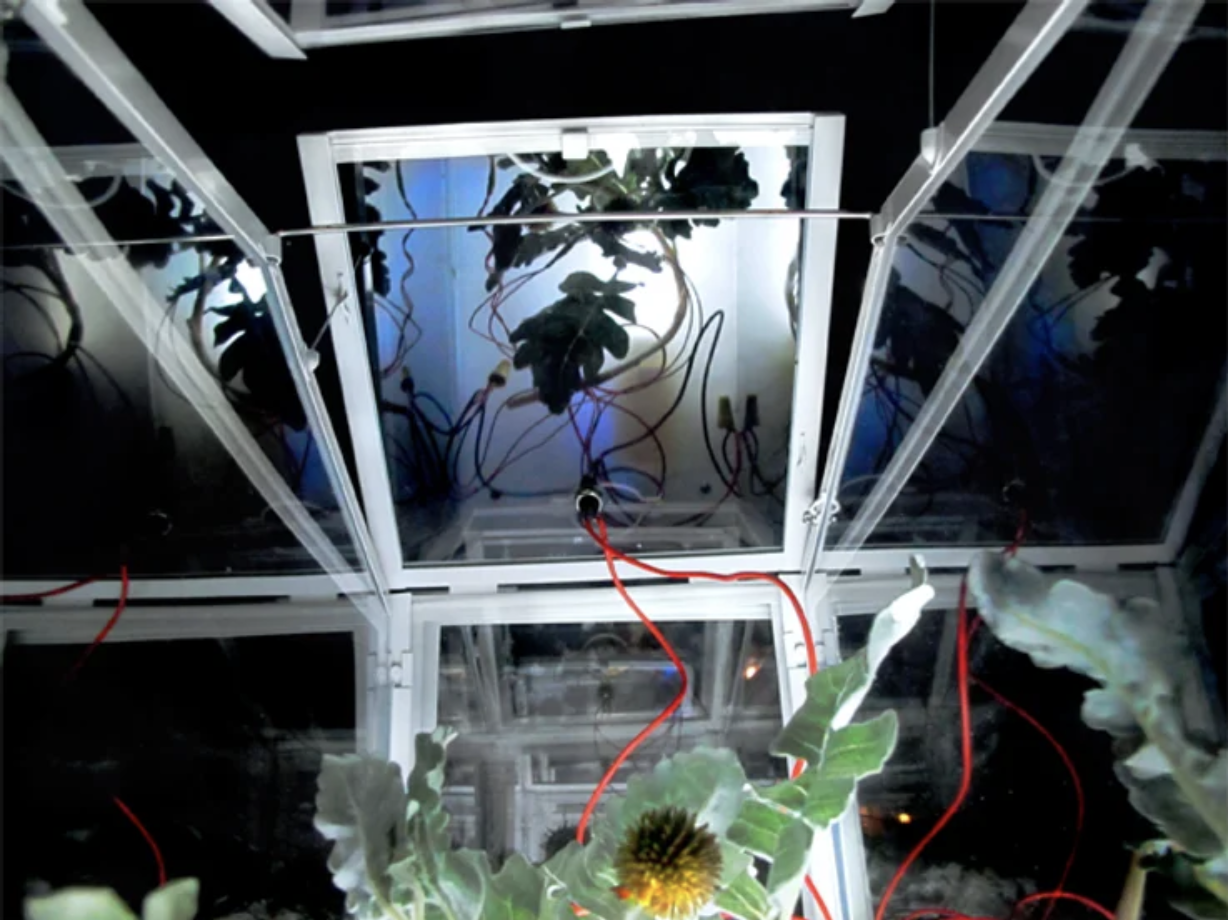
Automatic Greenhouse detail, PlantBot Genetics, Devils Hopyard, CT (2019)
Jeff: We love subversive structures because many people are overworked and don't always have the mental bandwidth left to take action for what is best. Changing perceptions through a fun disruption creates room for experiences that an audience will remember. Wendy modeled the PlantBot's function after her favorite First Nation trickster and hero, Nanabush (Ojibwe). Although Nanabush stories can be used as entertainment, they can also be used to pass down information and life lessons. Our lessons try to be empowering and fun. As a collaborative, we have never been interested in art that lands in a morgue-like-museum atmosphere to hang on a wall and die. We are also weary of artworks that illustrate problems without offering solutions. PlantBot Genetics practices Socially Engaged Dialogical Art which means art that interacts with communities directly to discuss what is happening in their area. Generally, people understand the importance of making changes; they are just overwhelmed and don’t always know what is best or where to start. Our projects work from the bottom up to provide easy solutions that make an impact. Get the average family involved in any way you can, and they will make small changes from within. Culture is fluid, and if you can engage enough people this way, you can instigate individual decisions that lead to community actions and a more just society.
Thank you, Wendy and Jeff!